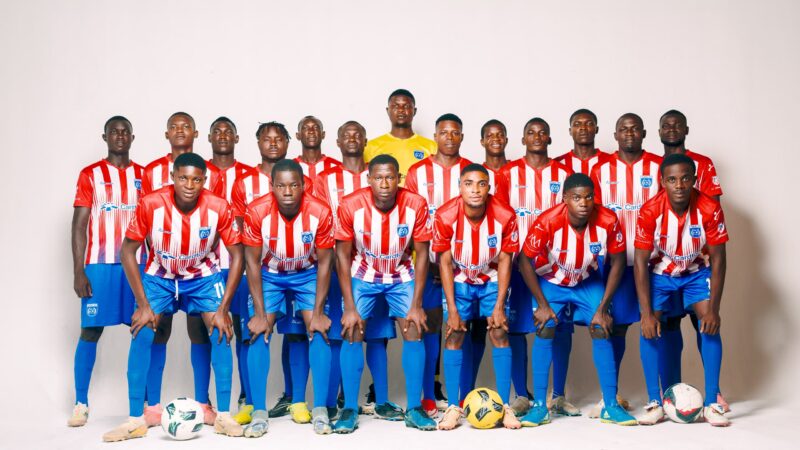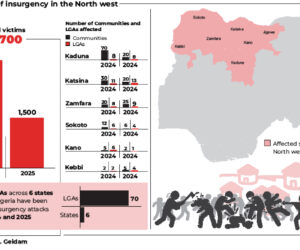Across the world, sport has long been recognised as a powerful tool for youth empowerment, creating pathways for education, economic advancement, and social inclusion.
Football, in particular, stands out as the most accessible and unifying sport globally, providing millions of young people the opportunity to pursue professional careers, escape poverty, and find community.
From Europe’s elite academies to South America’s bustling street leagues, football continues to shape destinies and inspire change.
In Nigeria, the passion for the game runs deep. Generations of young players have grown up playing barefoot on sandy fields and makeshift pitches, dreaming of reaching professional levels.
While the country has produced global stars like Jay-Jay Okocha, Nwankwo Kanu, and Victor Osimhen, the grassroots football structure remains underdeveloped, leaving many talented youths without opportunities to showcase their skills.
It is within this context that Tonic Football Club (Tonic FC) was launched in April 2025 by Cardtonic, a Nigerian fintech company.
Competing in the Nigeria Nationwide League One (NLO) — the country’s third-tier league — Tonic FC is designed as more than just a football club.
It represents an initiative focused on talent discovery, structured player development, and youth empowerment through sport.
In an exclusive interview with Premium Times, Emmanuel Sohe (E.S.), the CEO of Tonic Technologies, the parent company of Cardtonic, discusses the vision behind Tonic FC, its mission to nurture grassroots talent, and the club’s long-term ambitions.
A vision rooted in community
According to Mr Sohe, the idea for Tonic FC was born from Cardtonic’s ongoing connection to communities and its passion for football.
“We’ve always been big on community as a company, community give-back initiatives, and football generally,” he explained.
“The idea behind Tonic FC is pure and simple. We take youth development very seriously. We want to support our local leagues and give an opportunity to young, untapped grassroots football talents.”
The decision to launch in April 2025 was carefully timed. By then, the club had completed essential preparations, including scouting players, building its brand identity, and securing registration.
“Launching earlier would have felt rushed, and pushing it later would have meant losing momentum and missing the season. April gave us the perfect balance — enough time to prepare and still hit the ground running,” he explained.
Positioning within Nigerian football
Tonic FC’s registration in the Nigeria Nationwide League One represents a deliberate commitment to structured growth within the country’s football system.
“Registering Tonic FC in the NLO ensures the club is part of the official football ecosystem,” Mr Sohe said. “It’s the natural entry point into professional football in Nigeria and gives our young players the competitive platform they need to sharpen their skills and prove themselves.”
The long-term plan is ambitious. Tonic FC aims to climb the league ladder — moving from the NLO to the Nigeria National League (NNL) and eventually earning a place in the Nigeria Professional Football League (NPFL), the country’s top division.
Mission, vision, and youth development
Tonic FC’s mission centres on discovering and nurturing grassroots football talent while using the sport as a tool for youth empowerment. Based in Ikorodu, Lagos State, the club draws heavily from its immediate environment, which is known for its vibrant football culture.
“We’re hosting open trials, watching school competitions, and scouting street tournaments where kids play barefoot until dark,” Mr Sohe explained. “From there, it’s about proper coaching, mentorship, and providing structure through competitive football in the NLO.”
The club also invests in the well-being of its players. Tonic FC houses, feeds, trains, and supports its athletes financially, allowing them to focus fully on their careers.
“We believe players perform best when they don’t have to worry about the basics,” he added. “Taking care of their day-to-day needs boosts morale and ultimately improves performance.”
The club plans to measure its success by tracking the progress of its players — from grassroots football to professional opportunities, both locally and internationally
The Cardtonic connection
Although Cardtonic owns and funds Tonic FC, the initiative is not designed as a business expansion but as a community-driven project.
“Tonic Football Club isn’t a diversification play and it’s definitely not a pet project,” Mr Sohe clarified. “It’s about youth empowerment: taking young people off the streets, giving them structure, and helping them build real futures through football.”
By integrating Cardtonic’s values of innovation and opportunity creation into the club’s framework, Tonic FC operates with a professional approach that includes player salaries, mentorship programs, and structured development systems — practices not commonly seen at grassroots levels in Nigeria.
Road ahead
Starting a professional football club from scratch comes with challenges, particularly when most players come from informal football backgrounds.
“Most of our players are coming straight from grassroots football,” Sohe noted. “We’ve had to put in extra hours and create a structured daily routine, including morning and evening training sessions. Thankfully, our coaching team has prior experience grooming professionals, so we’re confident the players will adapt quickly.”
In the short term, Tonic FC’s priority is to build a solid foundation, develop its players to professional standards, and compete effectively in the NLO.
In the long term, the goal extends beyond league performance. The club aims to produce elite players capable of competing in the NPFL, earning international trials, and even representing Nigeria on the global stage.
Tonic FC also plans to deepen its collaboration with schools, academies, and community leagues to expand scouting opportunities for young talents.
READ ALSO: National Sports Festival: Bayelsa declares intention to host 2028 edition
Looking five years ahead
For Tonic FC, success will be defined by two core measures: sporting progress and social impact.
“On the pitch, success means moving up from the NLO into higher leagues and building a team capable of competing with the best,” Mr Sohe explained. “Off the pitch, it’s about seeing young Nigerians who came through our system living differently and earning a living from football.”











